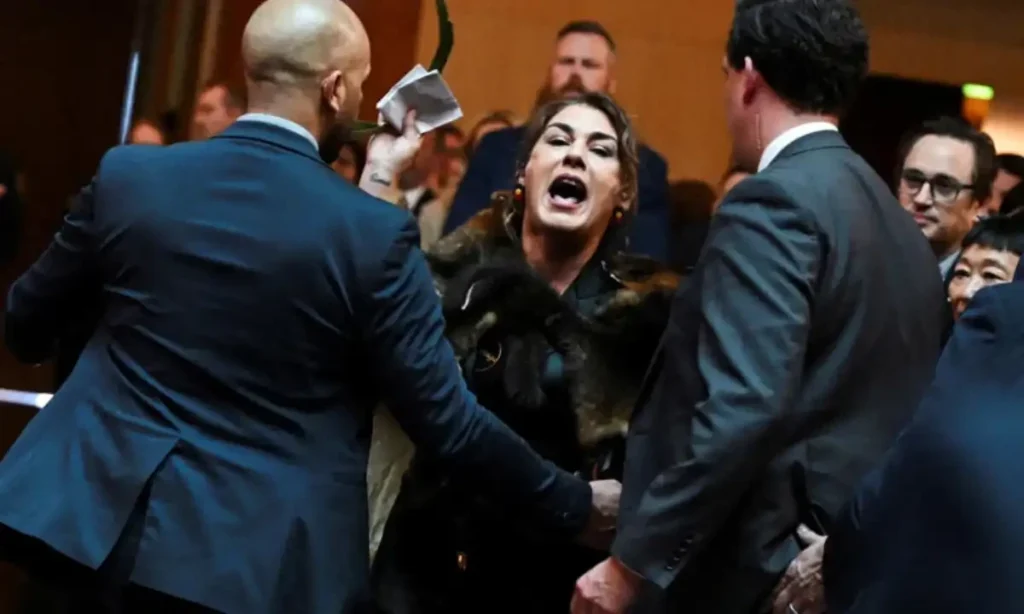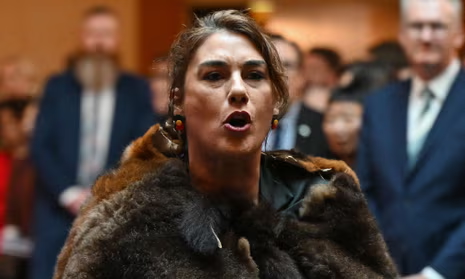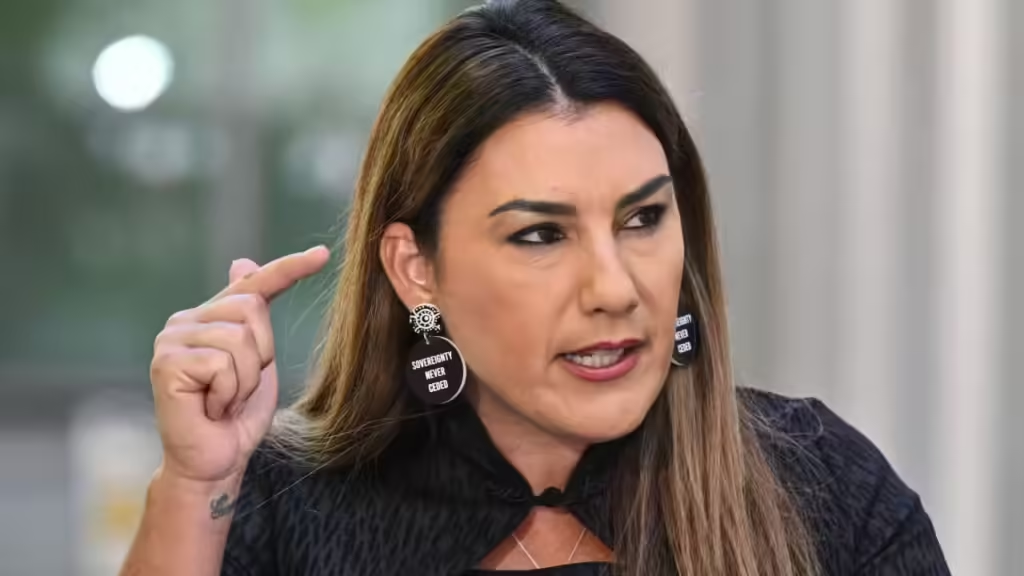In a bold and highly publicized moment, Australian senator Lidia Thorpe made headlines by shouting “You’re not my King” at King Charles III during his visit to Canberra’s Parliament House. Thorpe, known for her outspoken criticism of colonialism and advocacy for Indigenous rights, used this protest to challenge the monarchy’s relevance in Australia, particularly its historical and ongoing role in the oppression of First Nations people.
The Incident The incident occurred during King Charles III’s address to the Australian Parliament in October 2024. As the monarch completed his speech, Thorpe, an independent senator and a long-time critic of the British monarchy, approached him, shouting, “You’re not my King” in a symbolic act of defiance. This public demonstration aligns with her broader stance on the British monarchy’s role in the colonization of Indigenous lands and people.

Thorpe’s protest was part of a larger movement seeking acknowledgment of colonial injustices and demanding reparations. By confronting the King directly, Thorpe aimed to underscore the continued lack of sovereignty for Indigenous Australians, many of whom view the British Crown as a symbol of historical subjugation.
Lidia Thorpe’s Activism Lidia Thorpe, an Indigenous woman of Djab Wurrung, Gunnai, and Gunditjmara heritage, has been a vocal advocate for Indigenous rights throughout her political career. Elected to the Australian Senate in 2020, Thorpe became the first Aboriginal woman to represent Victoria in the Senate. Known for her uncompromising stance on issues of sovereignty, Thorpe has consistently called for a treaty between the Australian government and Indigenous peoples before any discussion of constitutional recognition or the establishment of an Indigenous Voice to Parliament.
Thorpe’s activism is grounded in the belief that Indigenous Australians deserve true self-determination, which she argues cannot be achieved under a system that maintains allegiance to a foreign monarch. Her protest against King Charles III is not an isolated event but part of her broader campaign for Indigenous sovereignty and reparations for the impact of British colonization.
A History of Defiance This isn’t the first time Thorpe has clashed with established authority figures. In 2023, she resigned from the Australian Greens over differences regarding the proposed Indigenous Voice to Parliament. Thorpe has maintained that a treaty must precede any such initiative, advocating for a stronger, more direct approach to addressing the rights and needs of First Nations peoples.

In her speech following her resignation from the Greens, Thorpe declared her commitment to the “Blak Sovereign Movement,” which focuses on Indigenous sovereignty and independence from colonial structures. Her protest against King Charles III can be seen as an extension of this ongoing political campaign.
Monarchy and Colonialism in Australia Thorpe’s actions come at a time when the relevance of the British monarchy is being questioned more broadly in Australia. Following the death of Queen Elizabeth II and King Charles III’s ascension to the throne, there have been increasing calls for Australia to reconsider its ties to the monarchy. These calls have come not only from republicans but also from Indigenous leaders, who argue that the monarchy’s role in Australia’s colonial past must be reckoned with before the country can move forward.
Thorpe’s protest is particularly poignant given the historical context of colonization in Australia. The British Crown played a central role in the invasion and dispossession of Indigenous lands, and for many First Nations people, the monarchy remains a symbol of that ongoing injustice. Thorpe’s defiance of King Charles III was a direct challenge to that legacy, demanding acknowledgment and reparations for the harm done to Indigenous communities.

Public Reaction and Political Fallout Thorpe’s protest has garnered widespread attention, both in Australia and internationally. While many have applauded her courage in confronting the monarchy, others have criticized her actions as disrespectful. However, Thorpe remains unapologetic, arguing that the British monarchy must be held accountable for its role in the colonization and oppression of Indigenous peoples.
In Australia, the protest has sparked renewed debate over the country’s relationship with the monarchy. As discussions about moving towards a republic continue, Thorpe’s actions have brought Indigenous voices to the forefront of the conversation, emphasizing the need for any future constitutional changes to address the historical injustices faced by First Nations people.
Lidia Thorpe’s protest against King Charles III was a powerful reminder of the unresolved issues surrounding colonialism and Indigenous sovereignty in Australia. As a fierce advocate for Indigenous rights, Thorpe’s defiance of the monarchy is part of her broader mission to achieve true justice and self-determination for First Nations people. While her actions have sparked controversy, they have also reignited important conversations about Australia’s future and its relationship with its colonial past.

Thorpe’s declaration that Charles is “not my King” reflects a growing sentiment among many Australians who are questioning the monarchy’s role in their country’s identity and history. As the debate over republicanism and Indigenous sovereignty continues, Thorpe’s protest will likely remain a key moment in Australia’s ongoing struggle to reconcile its colonial past with its future aspirations.
For Latest News Updates Click Here
